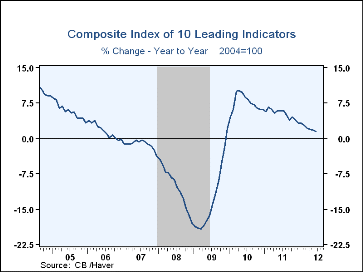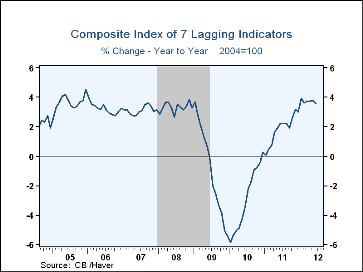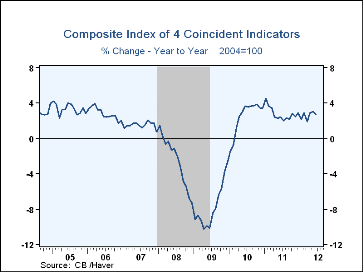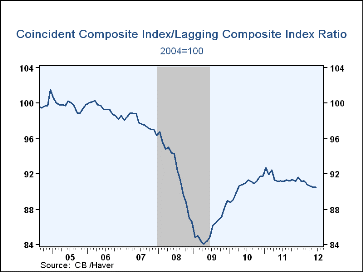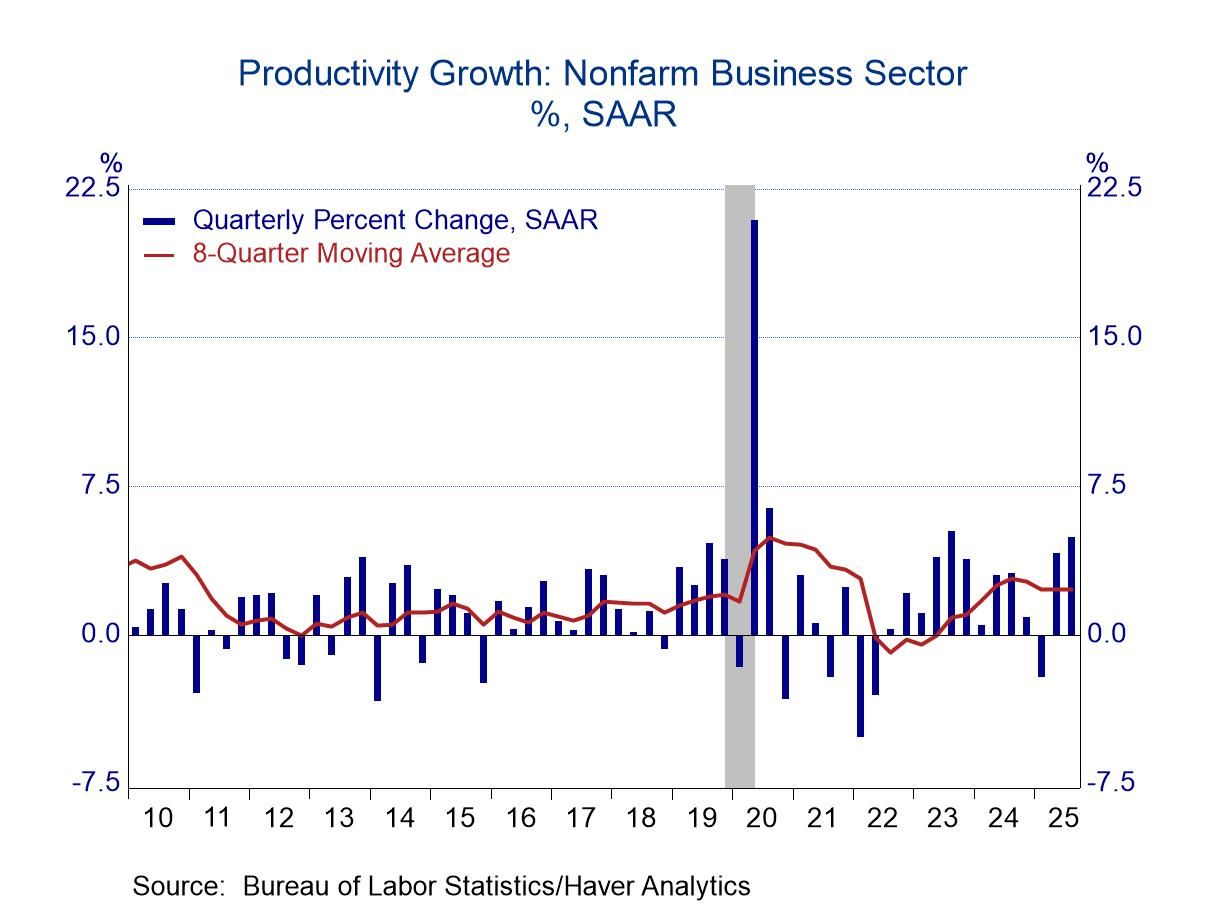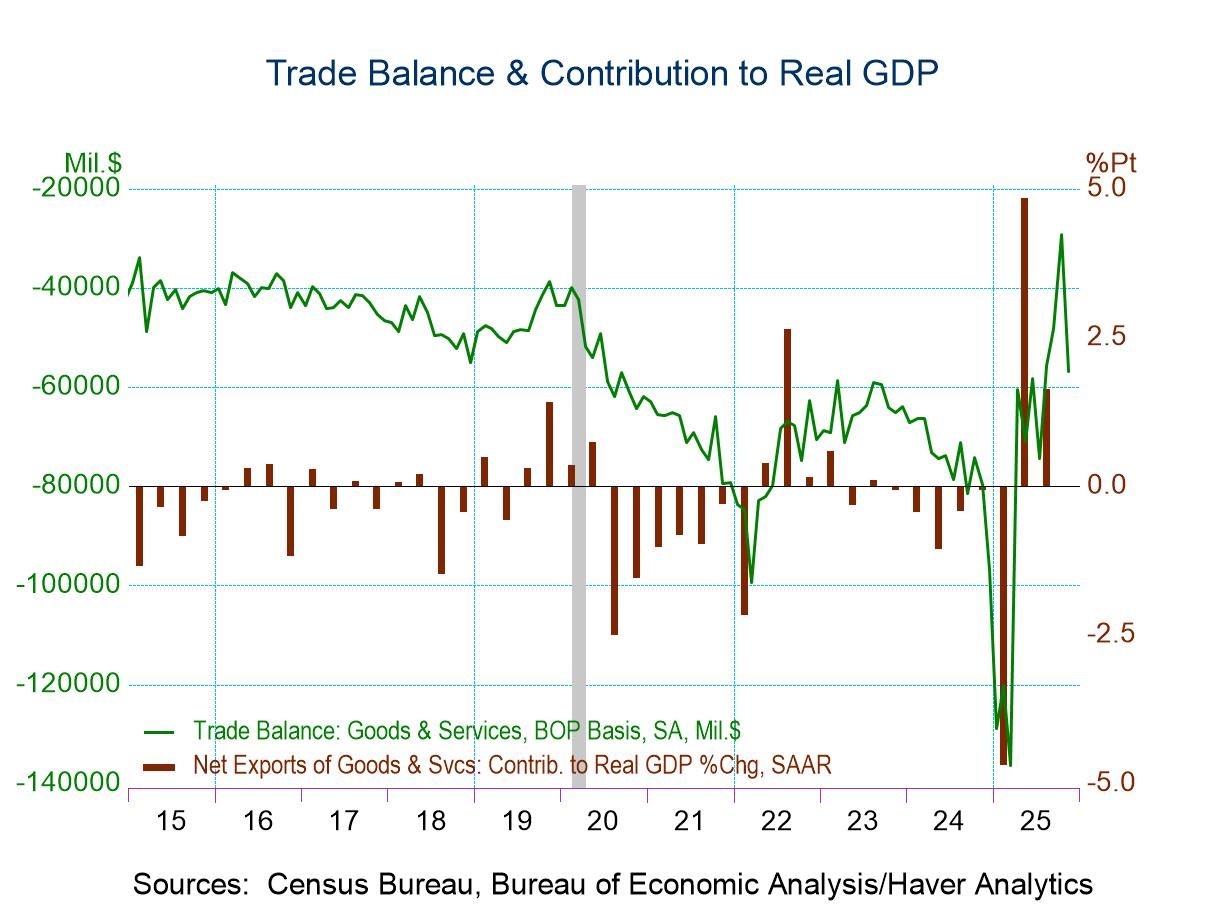 Global| Jul 19 2012
Global| Jul 19 2012U.S. Leading Indicators Waffle
by:Tom Moeller
|in:Economy in Brief
Summary
It's been hard to find a solid indication of the economy's future, and one of the better series has been waffling. The Leading Economic Indicator index from the Conference Board fell 0.3% last month following a 0.4% May rise, [...]
It's been hard to find a solid indication of the economy's future, and one of the better series has been waffling. The Leading Economic Indicator index from the Conference Board fell 0.3% last month following a 0.4% May rise, initially reported as 0.3%. It was the second decline in three months. A 0.1% dip had been expected. Component declines in the series were led by a lower ISM orders index, diminished consumer expectations for business/economic conditions, fewer building permits and lower stock prices. A greatly-diminished 40% of the component series rose last month, the least since September. A steeper interest rate yield curve provided the largest positive influence.
The index of coincident indicators increased 0.2% for a second month as each of the four component series rose, most notably manufacturing and trade sales.The index of lagging indicators rose 0.2% (3.6% y/y).
Another leading economic series is the ratio of coincident-to-lagging indicators. It measures how the economy is performing versus its excesses. The figure was steady m/m and sharply below its high of January last year.
The Conference Board figures are available in Haver's BCI database; the components are available there, and most are also in USECON. The forecast figure for the Consensus are in the AS1REPNA database. Visit the Conference Board's site for coverage of leading indicator series from around the world.
The Fed's latest Beige Book covering regional economic conditions is available here.
| Business Cycle Indicators (%) | Jun | May | Apr | Y/Y | 2011 | 2010 | 2009 |
|---|---|---|---|---|---|---|---|
| Leading | -0.3 | 0.4 | -0.1 | 1.5 | 5.2 | 7.6 | -12.8 |
| Coincident | 0.2 | 0.2 | 0.4 | 2.8 | 2.8 | 2.5 | -7.7 |
| Lagging | 0.2 | 0.3 | 0.6 | 3.6 | 1.8 | -2.9 | -1.0 |
Tom Moeller
AuthorMore in Author Profile »Prior to joining Haver Analytics in 2000, Mr. Moeller worked as the Economist at Chancellor Capital Management from 1985 to 1999. There, he developed comprehensive economic forecasts and interpreted economic data for equity and fixed income portfolio managers. Also at Chancellor, Mr. Moeller worked as an equity analyst and was responsible for researching and rating companies in the economically sensitive automobile and housing industries for investment in Chancellor’s equity portfolio. Prior to joining Chancellor, Mr. Moeller was an Economist at Citibank from 1979 to 1984. He also analyzed pricing behavior in the metals industry for the Council on Wage and Price Stability in Washington, D.C. In 1999, Mr. Moeller received the award for most accurate forecast from the Forecasters' Club of New York. From 1990 to 1992 he was President of the New York Association for Business Economists. Mr. Moeller earned an M.B.A. in Finance from Fordham University, where he graduated in 1987. He holds a Bachelor of Arts in Economics from George Washington University.


